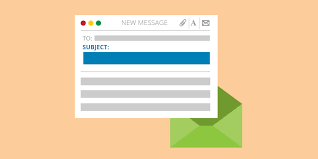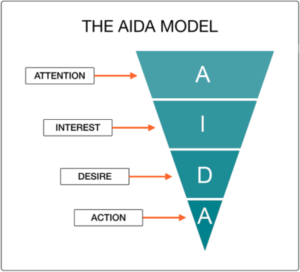Knowing how to write irresistible email subject lines that make your prospects eager to open and read your emails is an important skill to master.
We all know that email is a powerful channel for keeping in touch with your audience and nurturing your relationship with them. If you’re into internet marketing then I’m sure you’ve heard the expression “the money is in the list”. If you want to take that further and be more accurate then really that statement should be “the money is in your relationship with your list”.
If you have a great relationship with your list of subscribers, prospects, and customers then that will serve your business for years to come.
Email is still one of the best channels for nurturing, building, and maintaining relationships with your target audience. But it’s no good having a great email campaign or having great copy if nobody is opening your emails!
The key to increasing your email open rate is to have killer email subject lines that grab your prospect’s attention and forcibly make them click. I’ve made a quick list of easy to use tips that’ll have you writing catchy email subject lines in no time flat.
1. Your email subject line is no different from a headline
An email subject line has the same purpose as a headline in an advert – to GRAB the attention of your reader. If your prospects aren’t captivated enough by the subject line the chances of them opening your emails is dramatically reduced.
In fact, it’s as good as zero. If nobody is opening your emails it means they aren’t reading your emails. If they aren’t reading your emails it means you aren’t nurturing your relationship with them. If that goes on for much longer, you’ll soon be forgotten about. It won’t be long till they unsubscribe and are gone from your list forever…
A well-crafted subject line can be the difference between increasing your open rate or increasing your unsubscribed rate. You can prevent the latter from happening when you treat your email subject lines with the same importance as you treat the headlines of your sales copy.
They deserve the same amount of time and consideration. When you approach your subject lines with this attitude you’ll find yourself thinking more deeply about how to improve them and relate them to your readers, rather than writing some lazy rehashed nonsense that nobody is interested in.
Just like ad headlines, you should split-test your email subject lines and see which ones get better open and engagement rates.
2. A great subject line should be short and concise
You should be concise and get straight to the point in your subject line so your customer knows exactly what to expect when they open your email.
Your prospects are inundated with junk emails every day. They value their time and don’t like to waste it second-guessing what you have to say. When deciding whether to open your email or not they are likely to be thinking “what’s in it for me?”
Don’t keep your prospect guessing – a concise subject line should give them a good idea of what the email is about so they can make up their mind if they want to open and read it or not. You can be artfully vague enough to pique their interest, but not so vague as to leave them confused or in any doubt about what your email is all about.
Be upfront with them. Furthermore, if the content of your email delivers on what was promised or alluded to in your subject line you will increase the trust between you and your customers and strengthen your relationship with them.
3. Arouse curiosity with well-formed questions
Arousing your prospect’s curiosity is one of the best ways to grab their attention and make them want to open your emails straight away.
How do you arouse curiosity? One of the ways you can arouse curiosity is by asking a question. (Another way is to tell stories – see tip no 7).
Subject lines in the form of questions are known to work well because they appeal to the curious nature of your reader. A good question can arouse curiosity and make your recipients eager to click.
Examples:
- “Tired of working in a boring 9-5?”
- “Want to know the secret to invest in property with no money down?”
- “Worried about your low credit score?”
In order to be effective, the questions should be highly relevant to your target audience. That brings me to the next tip…
4. Make your subject lines relevant to your audience
Following on from my last point about creating relevant questions for your subject lines – you can only achieve this if you have a thorough understanding of your target audience.
Email subject line questions only work well if they are targeted to the needs, desires, problems, and pain points of your customers. In order to achieve this, you need to know your target market well! You need to understand what their problems and pain points are, what motivates them, what are their desires, and what results they are seeking.
If you don’t understand these factors, the questions you ask in the subject line won’t be relevant and therefore won’t create the necessary levels of curiosity that make them click.
It goes without saying that this applies to all aspects of your marketing and communication with your list – you should know thy customer! When you understand your audience, you can serve them better and create more value by offering relevant content, products, and solutions.
5. Create a sense of urgency
Urgency makes us act. It creates an overwhelming drive in us to take immediate action. As a marketer, being able to create a sense of urgency in your prospect’s mind is a valuable skill that can help you generate more subscribers, more sales, and ultimately more money.
Use limited-time offers
Limited-time offers are offers that are only available for a limited period of time. It could be 24 hours, it could be a week. The shorter the time period you more urgency you create as your prospects don’t want to miss out on a potential great deal – also known as the fear of missing out (FOMO).
Examples:
- “Get my email marketing course free – offer ends in 24 hours!”
- “Buy one get one free on all products – offer ends midnight”
Use limited shipping options
Create a sense of urgency in your prospects by offering free or discounted shipping if they buy within a certain time frame or spend over a certain amount.
Examples:
- “Get FREE shipping on all purchases made today – act now!”
For maximum effect, you can combine limited-time offers with limited shipping offers:
- “40% off everything – order now and receive by Friday – offer ends TODAY”
Scarcity
When something is scarce or rare its perceived value goes up – and this increases our desire to have it. Scarcity is so effective because it also triggers the fear of missing out (FOMO) in your prospects’ minds.
It is one of the best ways to create a sense of urgency.
Examples:
- “First 100 buyers get 20% off – don’t miss out!”
- “Get our limited edition widget now – only 500 have been made”
You can combine scarcity and limited-time offers to create an even greater sense of urgency:
- “First 100 buyers get 20% off – offers ends today”
The important thing to remember is to be able to deliver on these promises and maintain your integrity and credibility. If you offer free delivery if they buy today then you must fulfill that promise.
If you’re offering a 10% discount that ends at midnight make sure you end the promotion at midnight, regardless of how successful the promotion is. If you go back on your word you make some extra sales, but in the long run, you will damage your reputation and lose credibility with your audience.
6. Don’t overuse capital letters, exclamation marks, or currency signs
Capital letters in the subject line do have their place and use. They can be used to emphasize something like an offer deadline, or to bring attention to certain words in your subject line, like “FREE”. But they must be used sparingly as overusing them makes your email look spammy and will increase the chances of your email being ignored.
You should only capitalise certain words or phrases, not the whole subject line – when whole sentences are written in caps it is seen as aggressive and is a turnoff for your reader. Likewise, you should avoid using multiple exclamation marks!!!!!! (See what I did there?…)
Avoid using multiple dollar or currency signs as they will look like spam to your reader, and will possibly be labeled as spam by your email provider – in which case they may end up in your prospect’s junk mail folder and never see the light of day. There’s nothing wrong with using caps, exclamation marks, and currency symbols, but do it sparingly and with a bit of class.
7. Use stories and add some personality
Sharing stories is a great way to grab people’s attention and hold it.
As I mentioned in tip no. 3 stories can also be used to create curiosity. Stories make it easier to showcase your personality, share experiences, and increase the relationship you have with your readers.
They also act as a perfect vehicle for selling products and services, if done correctly. Strengthening the relationship you have with your list is one of the most important factors in increasing open rates, engagement, and sales.
You have a relationship with your readers and it’s important to show a bit of your personality in your emails so they get to know you better and connect with you on a deeper level. It’s OK to be real, be funny, be genuine. Share your stories, admit to mistakes you’ve made, and some of your vulnerable side – your audience will love you more for it.
Of course, you can’t tell a whole story in a short email subject line, but you can start to tell one…
Examples:
- “I can’t believe this actually happened to me today…”
- “Guys, I’m sorry I made a mistake…”
- “This was my one chance….and I blew it”
- “I was ready to throw in the towel, but then I learned this one thing and everything changed…”
These story openings create curiosity in your reader who wants to find out more. Stories have an almost hypnotic effect on us, they are able to capture and hold our attention much more than a lame presentation of dry facts and statistics. The best stories are normally the ones that contain a lesson for us to learn. They entertain and engage us.
The subject of storytelling in marketing is a deep topic, and if you’re interested in learning more you should check out my post on how to write effective stories here.
8. Test, test, and re-test your subject lines
As any good marketer knows, you should always be testing. Test your subject lines against others to see which produces the better results.
When you find one that works, break it down and try to identify the elements that made it work. Once you know what makes a winning subject line you can create other successful subject lines and ad headlines using the same elements.
You should also analyse your less successful subject lines and try to determine why they didn’t work. Change some of the elements using some of these tips and see if you can improve its performance.
Keep a swipe file of all your subject lines and refer to it whenever you need inspiration.
Writing good email headlines is a skill
If you apply the tips above and constantly test and tweak them, you will develop a knack for creating click-friendly email subject lines that make people want to open and read your emails more often.
Writing subject lines is no different from writing sales copy – it takes practice and a bit of know-how. I’ve written a list of my top 5 copywriting tips that are quick to learn and which can give you more insight into this essential skill.
I also recommend you get your head into some good books on copywriting – it’s a fundamental skill that every marketer should have at least some understanding of. When you know how to write effective sales copy you can literally double, treble, or even quadruple the ROI of your marketing campaigns.
Check out my review of 7 of the best copywriting books every marketer should own and read.




